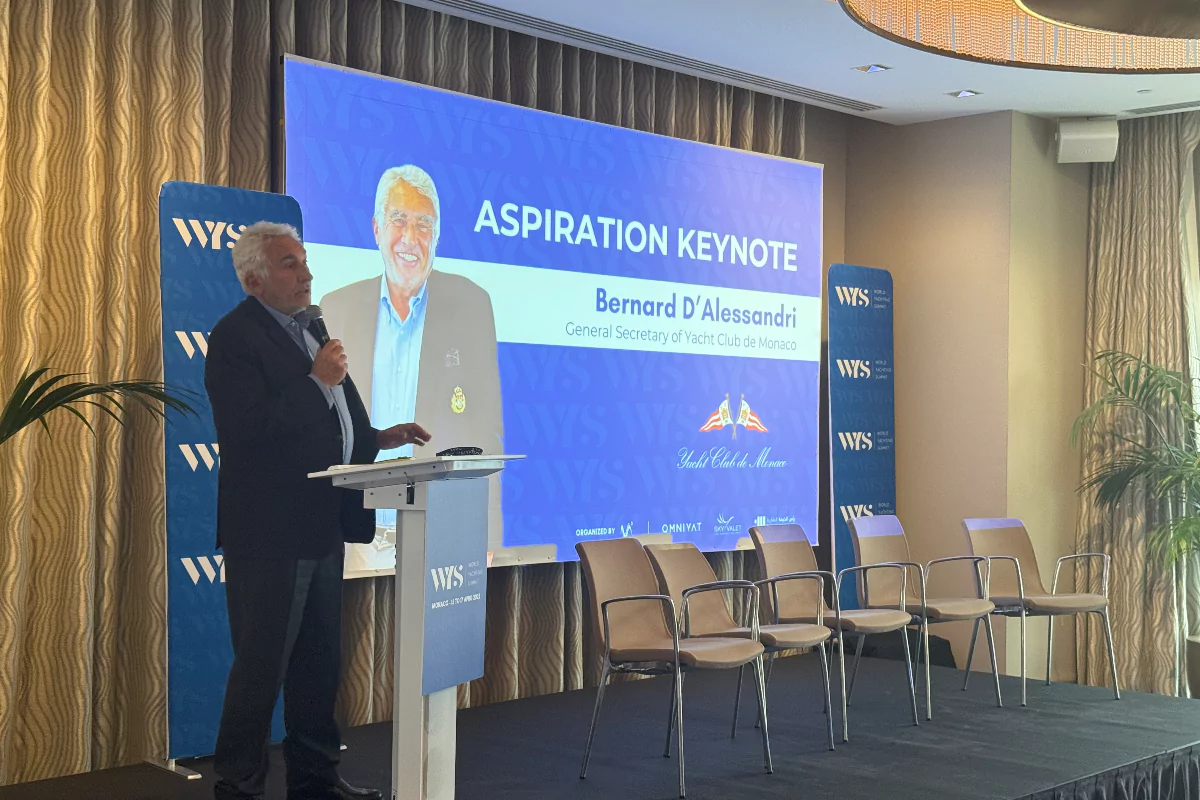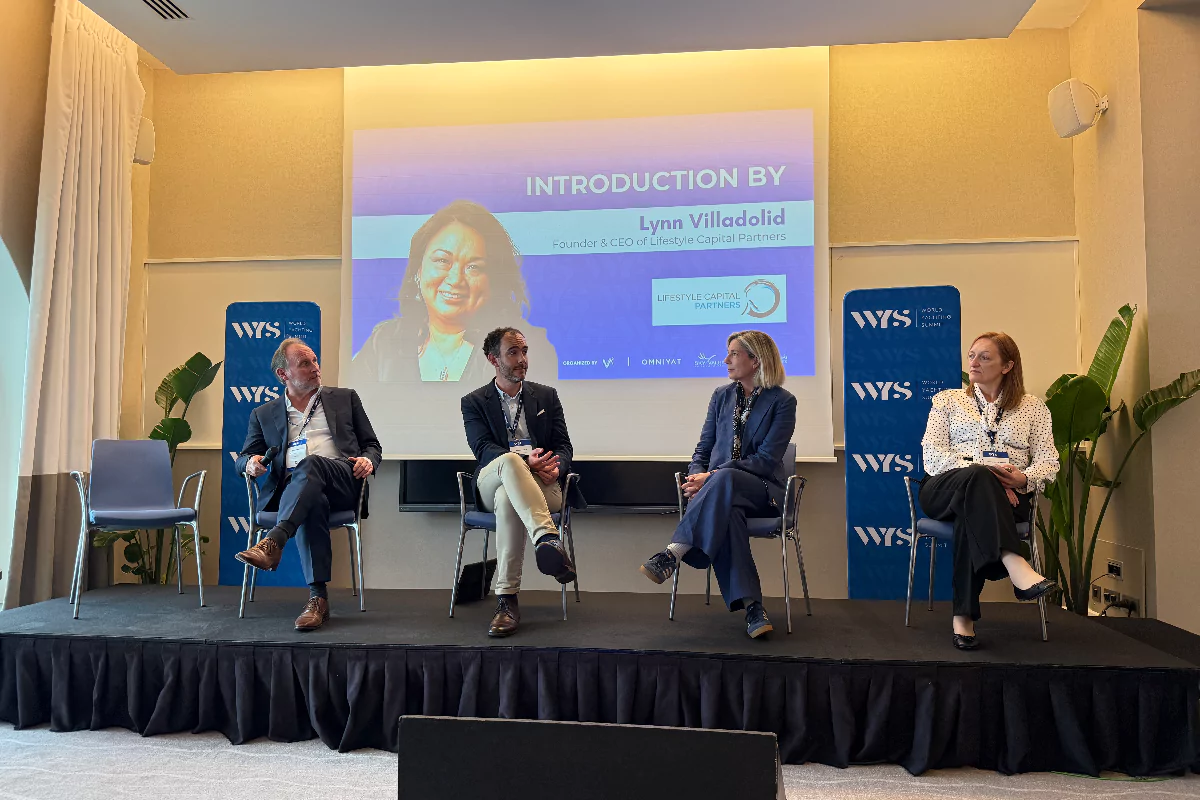The inaugural World Yachting Summit (WYS) has been launched in Monaco, bringing together industry leaders, innovators, and policymakers to address the future of the yachting sector. Running from 15th to 17th April at the Monte-Carlo Bay Hotel & Resort, this groundbreaking event marked a significant departure from traditional boat shows by focusing on dialogue, debate, and actionable strategies for the industry’s future.
Monaco was strategically chosen as the inaugural location. Laurent Perignon, responsible for the development and content of the WYS, explained in an interview with Monaco Life: “Monaco is the capital of advanced yachting, and this is the objective—to have a summit that helps advance yachting and develop it further at the global level”.
Perignon further elaborated on why Monaco appeals to yacht owners: “The success of Monaco and the French Riviera lies in having the perfect recipe. Just like preparing a great dish, it all comes down to the right ingredients — and for years, even decades, this region has consistently brought together all the elements needed to thrive.”
Unlike conventional yacht shows focused primarily on sales, WYS positions itself as a platform for meaningful exchange. As Perignon described it:
The summit was structured around two thematic tracks: ‘Business and Tourism Development’ and ‘Practical Roadmap to Net Zero’. It featured an impressive lineup of speakers including Francis Lapp of Sunreef Yachts, yacht designers Espen Øino and Dan Lenard, and representatives from leading companies such as Feadship, Volvo Penta, and Rolls-Royce.

Understanding owner preferences
One of the most revealing discussions centred on yacht owner priorities. Matty Zadnikar of SeaNet Superyachts, with extensive experience managing superyachts, shared: “Owners aren’t particularly concerned with infrastructure — which might come as a surprise. When they’re on board, most prefer to be away from the city, not to cut costs, but because they enjoy being at anchor. They don’t want to be packed into a port, surrounded by other boats.”
Zadnikar also noted changing regional preferences: “What I’m seeing now is a clear shift toward the Eastern Mediterranean — and for good reason. One major factor is the freedom to anchor without restriction. These days, being able to drop anchor feels like a privilege. In places like France, not adhering to regulations can cost you up to a hundred thousand euros.”
Environmental considerations also emerged as crucial factors in destination choices. “It’s all about wind and waves,” highlighted Matty Zadnikar. “Believe me, when you’re in Greece around Mykonos during the summer, the weather might look beautiful, but being on a yacht isn’t always enjoyable — the waves can be brutal. It’s far from comfortable. So yes, sunshine is important, but what really matters to most is calm conditions with minimal wind and waves.”
The emergence of slow yachting
An emergent theme at the summit was “slow yachting”—a philosophical and practical approach that encourages more mindful and sustainable experience at sea. Rather than prioritising speed, luxury, or rapid itineraries, slow yachting focuses on taking time to fully engage with destinations, reducing environmental impact, and reconnecting with the essence of being on the water.
Vienna Eleuteri of the Saudi Red Sea Authority explained in an interview with Monaco Life: “The slow movement is important because when we recognise that we are too involved in what we do, forgetting who we are, we miss the most important part of ourselves and the meaning that brings us to do things.’’
This philosophy aligns with the industry’s evolving sustainable goals. It advocates for practices such as spending more time anchored in eco-friendly locations, using hybrid or low-emission propellers and reducing overall consumption onboard. “Sustainable yachting needs to be achieved because yachting is about our love for the ocean. That’s what connects us to yachting,” Eleuteri continued. “We’ve been struggling to get there because some cultural choices didn’t help us stay on the right track, but we are making progress. The yachting industry will become not only sustainable, but even regenerative.’’
Industry insiders also highlighted ongoing operational challenges, particularly in crew retention. Zadnikar explained, “Every time a crew member leaves, valuable knowledge leaves with them. But owners often question why they need key staff like the chief officer or chief stewardess during the off-season. At the same time, they expect top-tier service when the next season begins. Then come the complaints — ‘Who is this new person? I don’t know them, and they’re not up to standard.’ It’s a difficult and frustrating cycle.”
Looking forward
The second day featured a keynote address by Olivier Wenden, Vice President and CEO of the Prince Albert II of Monaco Foundation, on harmonising yachting with environmental preservation—a theme increasingly central to the industry’s future.
Wrapping up the summit, Bernard D’Alessandri, General Secretary of the Yacht Club de Monaco, delivered an aspirational keynote that echoed the event’s core message. “When we are in the ocean, we ought to respect it,” he said. “Because we are its guests.”
The summit demonstrates a commitment to internationalisation, with plans to alternate between Monaco and Dubai in future editions. The 2026 event is already set to take place in Dubai, reflecting the growing importance of Middle Eastern markets in the yachting industry.
Monaco Life is produced by a team of real multi-media journalists writing original content. See more in our free newsletter, follow our Podcasts on Spotify, and check us out on Facebook, Instagram, LinkedIn and Tik Tok.
All photos by Monaco Life
